“If you could live anywhere you wanted, where would you live?”
Well, the answer to that question for many people around the world it seems is Malaysia!
A new retirement index from International Living.com asking people to vote on their ideal retirement destination in Asia in 2018 had ranked Malaysia in fifth place globally.
The survey found that retirees can live comfortably in Malaysia on just US$2,500 (RM9,817) a month, which is seemingly a mere fraction of what is needed to live comfortably in many other countries.
Not forgetting of course, Malaysia’s medical tourism industry which offers quality healthcare at affordable prices and our eccentric variety of cuisines.
Before I continue further, let me take a moment to give a shout-out in honour of our country. To all Malaysians reading this, please don’t forget how fortunate you are.
Perhaps for those of us growing up in Malaysia, we take the vast greenery, picturesque beaches and affordable array of tasty food for granted, but apparently to many people from foreign countries, that is exactly how they envision their retirement; a permanent vacation in Malaysia with great weather and even better food supported by modern amenities and healthcare.
“We Can Get The Best Of Both Worlds”
This writer conducted a random survey and sure enough, expatriates are mostly fascinated with our welcoming people, cultural diversity, lower cost of living and food, glorious food.
Emma from the U.S. who currently resides in Malacca said although many find that the noisiness, dirty city streets and dangerous driving conditions can be a challenge, but where you choose to live makes a big difference in lifestyle as well.
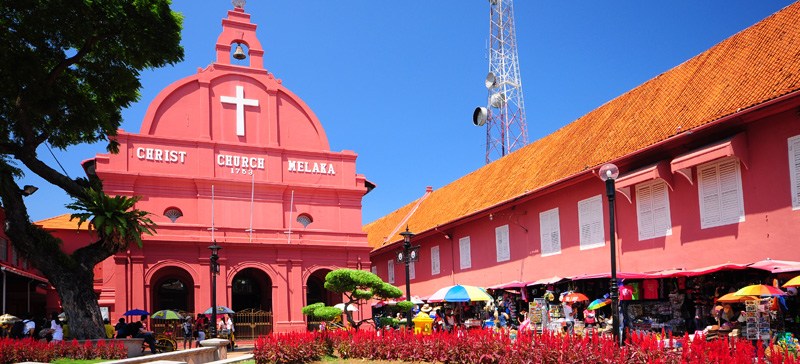
“Try it for yourself and enjoy the Malaysian friendliness, the unbelievable wide range of good food, and lots of sunny days. Experience the different places like bustling Kuala Lumpur, romantic Malacca, or the laidback food-heaven Penang,” she added.
Echoing her stance was Takahiro, a retired Japanese expat living in Kuala Lumpur, who we met at coffee shop on a Monday afternoon.
“The thing I love most about Malaysia is how we can get the best of both worlds and all in a few hour drives away. If my family and I need to do some major shopping, we head down to KLCC or Pavilion. If we need a peace of mind, we head up north to Penang or maybe the east coast like Terengganu and Kelantan,” said the 68-year-old expat.
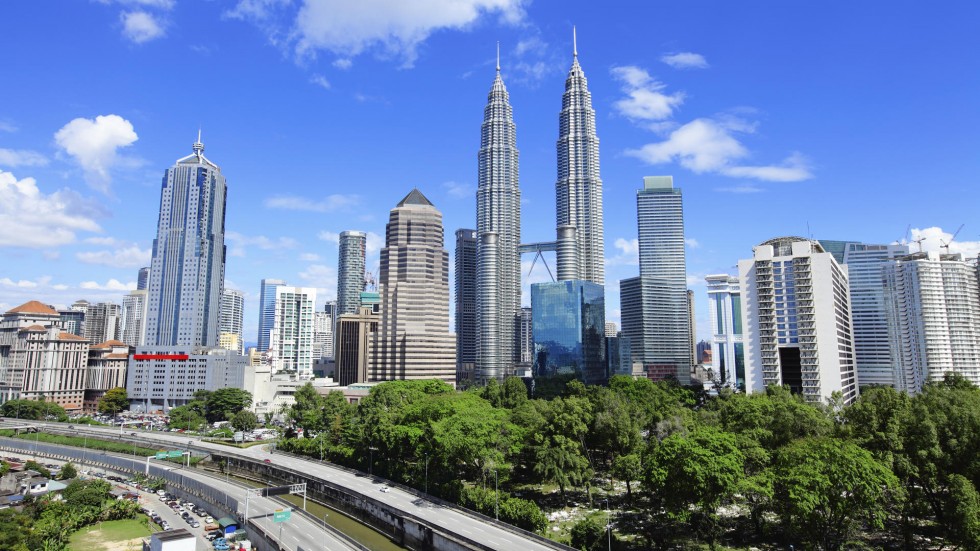
It’s a grand way to spend a week, but do you really want to lie on the beach or ski for the next 20 years? Even if the answer is yes, can you afford to?
When you are thinking of retiring in country far from home, there are a lot of aspects you need to look into. For instance, cost of living, healthcare, climate, and many others. With this in mind, it makes sense to start with ringgits and cents when defining your retirement destination.
Despite what Toba Beta has to say, “You get older faster when you think of retirement”, it’s always best to get ahead of your financial planning now rather than the uncertainties in the future.
Besides coming in 5th place globally, Malaysia actually tops the chart as the most ideal retirement destination in Asia in 2018.
Malaysian Digest sought to get an in-depth perspective from the expatriate’s viewpoint as to what is it about Malaysia that proves so irresistible to citizens from far flung places like United States, Japan, and various European nations.
“In Malaysia, You Can Enjoy Every Day Outside Throughout The Year”

Koen Van Haeren
Generously sparing some of his time with us, Koen Van Haeren, a 58-year-old Belgian who moved to our country 20 years ago reflected on his life here in Malaysia.
Currently, Koen, his wife, and three beautiful children live in Kota Damansara.
Sharing with us how it began, Koen was fortunate to be given the opportunity to work in an oil company in Malaysia which was particularly interesting for him as his wife is Malaysian. They had already lived in Europe for 10 years with their first two young children and it then became a good turning point in their lives for Koen to move his family to Malaysia and make a living here instead.
“And 20 years later, we are still here. So I have no regrets whatsoever. Thankfully, my wife has a large circle of friends and family so it made integrating easier for us as the kids are happy and doing well with their studies and social life.
“Life has been good here and oddly enough, Malaysians always complain about everything like the education system, politics, cost of living etc, but in all honesty, it is quite good here actually,” he relayed.

Further sharing with us, Koen said some of his best memories here were witnessing his children’s achievements. All three of Koen’s children are very active in sports and co-curricular activities which their schools had provided so it was a great opportunity altogether.
Like his children, Koen is very active in sports and the outdoors. He finds the climate and heat good for him, adding how since being in Malaysia, it is as though he was given a few extra years of youth!
“Also in Europe for example, most seasons in the year, you are confined indoors as it is dark and cold outside. In Malaysia, you can enjoy every day outside throughout the year. Every other day, I can ride my mountain bike from my house straight into the jungle and have a fantastic time there whenever I please.

Koen at a Spartan race
“I find if you live like a Malaysian, you eat the local food, do what the Malaysians do and not get too upset that things are a bit different than in the Western world. With that, you can easily get by all right over here.
“However, I don’t think Malaysia will ever become the main retirement place for foreigners abroad but what you see is that foreigners who lived and worked here for a while, paid taxes, have ties that bind, people who are connected and integrated, and basically, lived a life here, those people are the ones who tends to stay on when they reach their retirement age. Malaysia My Second Home concept definitely works,” he added.
Previously, Koen used to work as an engineer and project manager in a major oil company. Today, he does sports every day for a few hours. Since retiring, Koen makes it his job to stay fit, healthy, and to avoid medical care costs that go with aging. To keep his brain and mind healthy, Koen studies all kinds of subjects for fun like history, electronics, automation, artificial intelligence, psychology, and even programming languages.
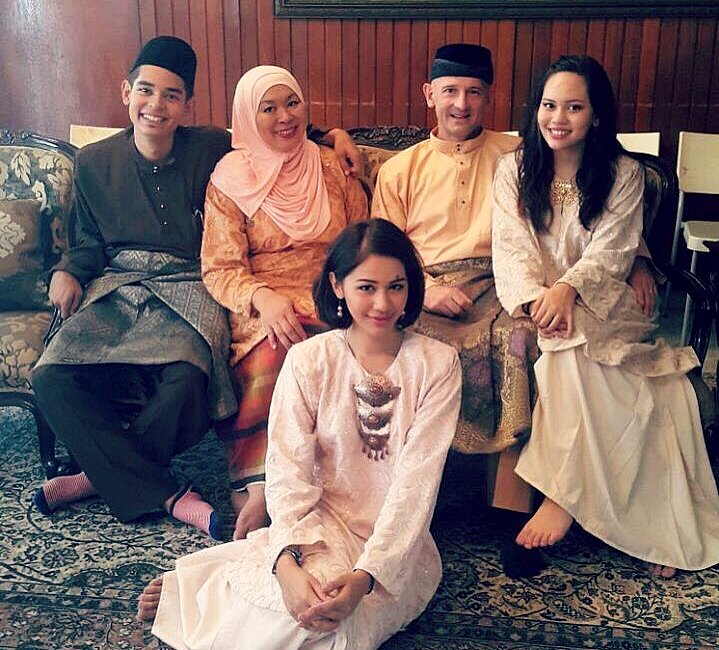
Koen with his wife and beautiful children on Eid Fitr.
“Furthermore, I happily do household chores and bring the kids wherever they want to go and whatever they want to do. They do so many things that is also my full time job.
“I am also a committee member of a club and that takes also a fair amount of my time. In fact, I am so busy now that I am retired that I don’t understand how I ever found time to work as an engineer before,” he concluded.
As Koen mentioned, Malaysia My Second Home (MM2H) has proven to be a success story in making Malaysia a preferred retirement destination.
MM2H Retirees Have Greatly Contributed, Be It Economically Or Socially, To Our Country
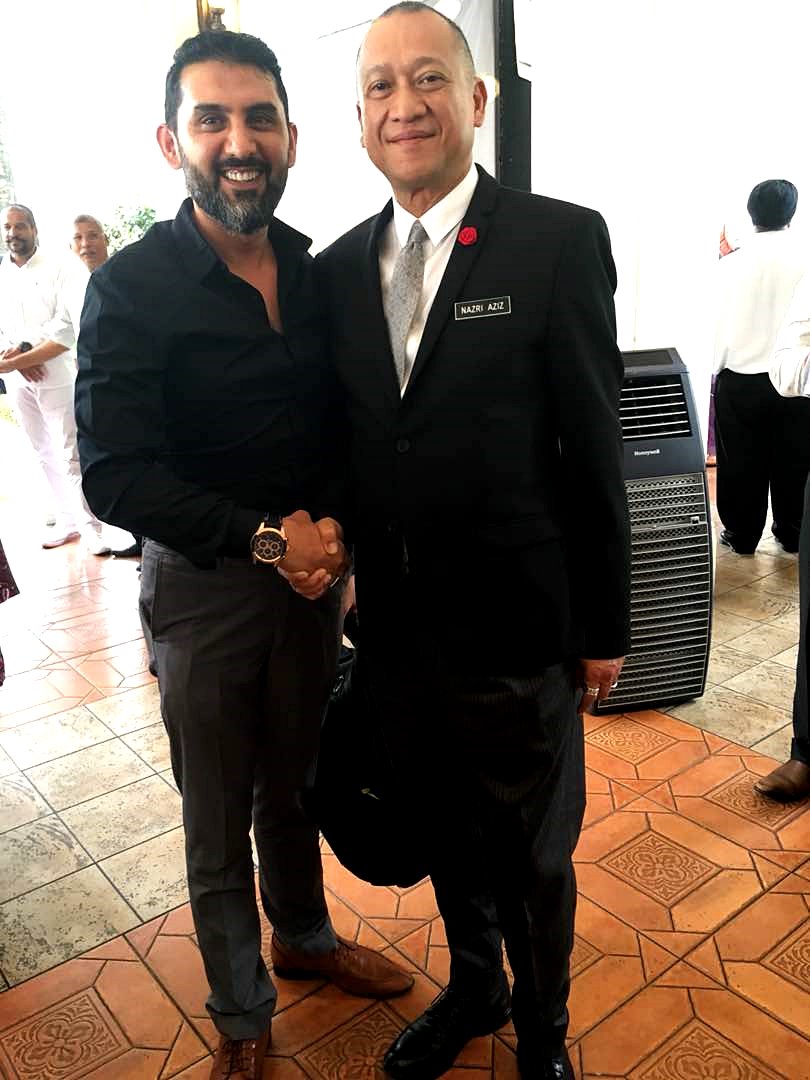
Ismail Mussa with Tourism and Culture Minister Datuk Seri Nazri Aziz.
Malaysian Digest was very fortunate to get in touch with Ismail Mussa, Executive Director & Senior Migration Consultant of MyExpat (MM2H) Sdn Bhd where he shared his insights on the expats here and what they find most agreeable living in Malaysia along with its pros and cons.
As to which age group Malaysia mostly attracts when it comes to retiriees, Ismail said that between the ages of 55 to 70-year-old, many people all over the world have decided that our beloved country best suits their expectations.
When you walk along the streets of Mont Kiara or Georgetown, you often see many elderly foreigners strolling along as they chat away with their loved ones towards their desired destination. Based on this writer’s personal observation, she can’t really tell where they originate from simply by their looks, unless a conversation strikes ups and she notes their accent.
So in order, Ismail breaks it down for us which nationality makes up the majority of MM2H expatriate retirees in our country and from the most, we have British, Chinese, Yemen, Pakistanis, Indians, Bangladeshis, and finally Singaporeans.
The first and the last nationalities was most understandable as the cost of living must be outrageous to adapt for the rest of your life, and as for the others, perhaps the Malaysian benefits, in terms infrastructure and healthcare, is a plus point.

Ismail also shared with us the state that most expatriate retirees reside in Malaysia and Selangor tops the list because it is simply more convenient for them in terms of facilities like public transportation and entertainment, infrastructure, and being surrounded by the growing expat community here.
“Coming in close second is none other than Penang, the ultimate food and culture haven, because of its large expat community residing especially in Georgetown and the northern part of the island like Gurney, Tanjung Bungah, and Batu Ferringhi, as well as the expat colonial history that has been there since many years ago,” he relayed.
Ismail also believes these foreign retirees can be an advantage to Malaysia in aspects like bringing in foreign currency, tourism, Malaysia brand ambassadors, investment; adding nuances to Malaysia’s deep roots in culture, religion, and of course, food.
“As for now, the retired expatriates are mostly just bona fide retirees. However, I do know of some who are actively doing well with their own businesses here, mainly in property and investment,” he said, which is an excellent factor if you would like to ensure your retirement in later years would always be comfortable and the occasional gateways with the family are financially possible.
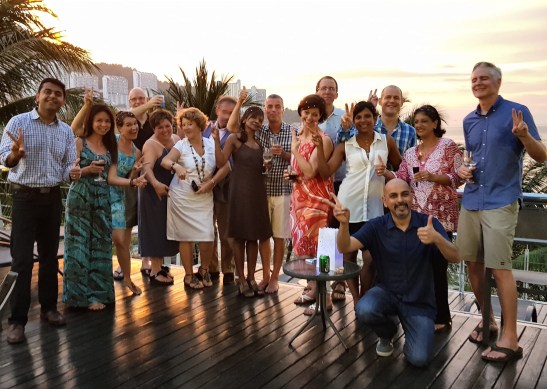
Pic: Oh MY Expat Life
Sharing with us further, Ismail said these retirees in his MM2H programme has indeed greatly contributed, be it economically or socially, to our country throughout their stay here.
“Especially in societal matters, these expatriate retirees have enabled locals a chance at a foreign experience as they live in the same neighborhood and participate in family activities and get-togethers so locals can get to know a whole new other culture besides their own.
“Many middle-Eastern and Asians have also married locals here and this allows the Malaysian society to further enhance and develop with rich diversities,” he added.
You can find quite a number of expat clubs and associations in Malaysia. Several of them are based in Selangor with branches in Penang, Johor Bahru and other parts of Malaysia. The more social-oriented expat organizations include the Malaysian Australian New Zealand Association (MANZA), the Canadian Association of Malaysia and the Malaysian German Society which mainly provides social network and support to expats. Charity events to give back to the local community are often organized too by them!
And if you are looking for an online community, Internations is a very useful social networking site that helps Malaysian expats connect and stay in touch with other resident expats. Present in over 390 expatriate cities worldwide, it is an essential tool for expats to exchange insider tips on Malaysian expat living.
Economist Outlines What Retirees Look For
When we talk about retired destination, we often focus on the guest entering our country.
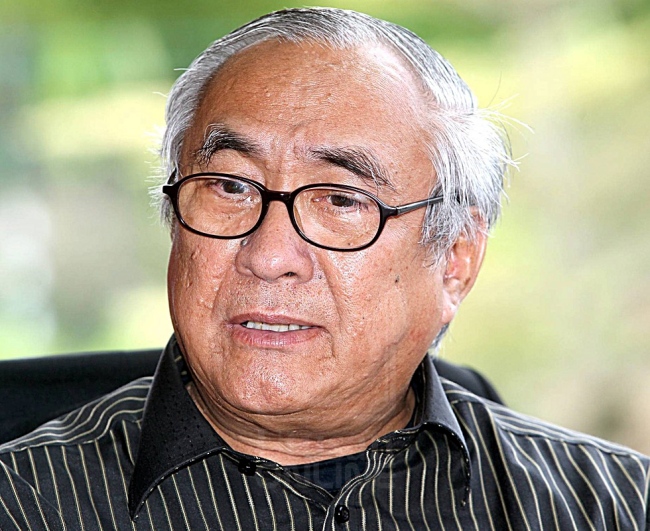
Prof. Amir Baharuddin
What about the conditions and consequences for the host? How do we in return, see to these new welcoming as an advantage?
Malaysian Digest also reached out to Prof Datuk Dr Amir Hussin Baharuddin, an economic expert, as we discuss Malaysia’s current and future state.
When finding out about our country’s latest ranking, Prof Amir was exceptionally pleased and agreed that in terms of cost of living, crime rate, facilities and infrastructure, Malaysia has indeed been improving tremendously over the years.
“If you take major town areas like Penang, Kuala Lumpur, and Johor, they all have good health and communication facilities that are an advantage for major retiring areas.
“But for the consequences, we can never really know what would happen to our global structure and security as hosting retirees is not easy. You have to always improve the health standard, the transportation and housing facilities as well as infrastructure.
“So I wouldn’t say we are going to be exceptional like the tourism services but it is a sector we need to always develop for the better and if we are thinking about our own and country’s future, that’s where we must do our part.
“Thankfully, we are not and hopefully never, constrained in helping retirees in the next decade,” he said, adding that if you need a good retirement destination that has cheap food, good communication infrastructure and individual goods, then Malaysia is a worthy choice.
To maintain this status our country now proudly holds, Prof Amir said with the government in its annual budget planning, we should always try to make all that we have even better in later years.
“I believe the standard can always be improved. Retirees may come from various backgrounds and some of them are not bona fide. Some retirees may also have their own grand schemes and that’s what we try to avoid in Malaysia.
“Overall, we would welcome those who would like to retire in Malaysia because part of the deal is that we also have to acknowledge the fact that the world will have a large amount of retired people and if we want to make Malaysia available to others, why not then! Just as long as space provide, our capacity is not overburdened, and we can afford it,” relayed the well-respected economics professor.

For now, worrying about the major diseases outbreak isn’t a side-effect our country has to stress on as no controversial outbreaks had been reported. Our security and screening for expatriate retirees or anyone entering Malaysia for that matter is very strict, said Prof Amir, so instead of focusing on the side-effects, we always look to improve on other factors.
Nothing can ever be certain nor perfect, and like our beloved country, we can always make room for improvements.
As a country, Prof Amir said we should always have a master plan, policies in place, the annual budget interstices, as well as the 25 ministries to administer our country.
“We have been ready to hold the best retirement destination since the year 2000 and every year we pay attention to even the minor details. To date, we still ask ourselves if we can do better.
“Strategies is our concern. People would want to retire to a place that, firstly, has to be peaceful. Secondly, food must be reasonable. Third, health facility must be affordable. These are very dynamic areas we have to always focus and improve on.
“So that’s why we feel that every year, in every budget, we cater for every sector including the retiree sectors. Our adjustment is quite good nonetheless, because every January 15th, we make adjustment to the necessary factors. The good ones we keep, the one that isn’t working, we fix it. It’s a continuous effort, initiative, and dynamic improvement all the time,” he added.
Source: Malaysian Digest